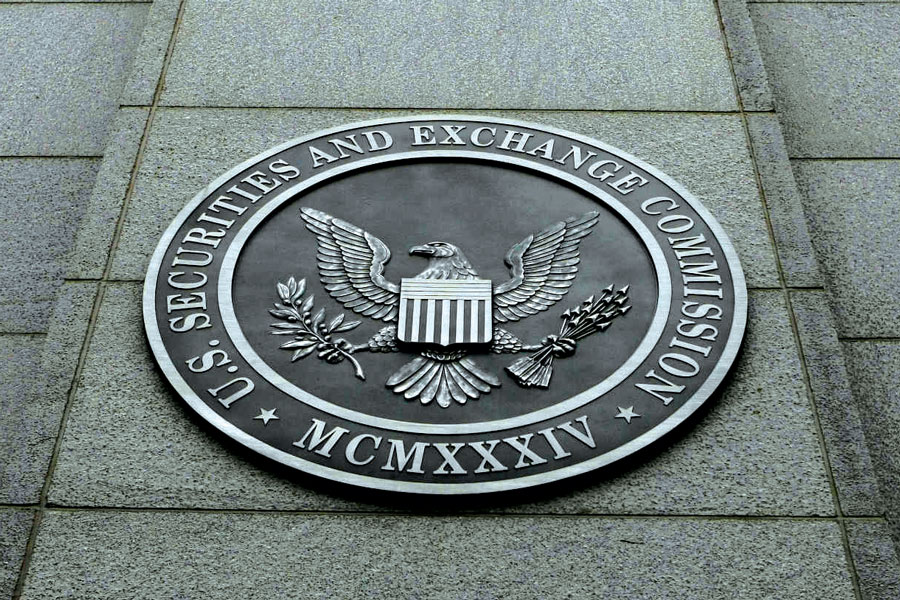

Republicans have resisted mandatory corporate disclosures of climate risk and other environmental, social and governance factors with almost as much gusto as the Securities and Exchange Commission has embraced them.
GOP members of the House Financial Services Committee last week warned SEC Chairman Gary Gensler not to expand climate disclosure requirements.
The SEC is gathering public input about corporate climate reporting. The comment request is one of several actions the agency has taken over the past several months to elevate ESG oversight, including establishing a climate and ESG enforcement task force.
The flurry of activity has drawn concern not only from Capitol Hill Republicans but also the SEC’s Republican commissioners, Elad Roisman and Hester Peirce.
In a June 3 speech, Roisman said the thrust of climate disclosure seems to be on assessing the damage a company does to the environment, not the havoc climate change can wreak on a company. That led him to question the SEC’s role.
“To the extent that the interest is in understanding risks the company poses to the climate, what makes the SEC the appropriate federal agency government agency to require these disclosures, as opposed to, for example, the Environmental Protection Agency?” Roisman said.
Congressional Republicans have been pressing Gensler on whether ESG disclosures are material to a company’s financial results. They argue firms themselves should determine what’s material.
Gensler says that decision is in the hands of investors, who have put $17.2 trillion into sustainably invested assets.
Although political tensions are rising over ESG regulation, we’re not heading toward a cliffhanger on whether the SEC will promulgate new ESG rules. Spoiler alert: It will.
Under Gensler, the SEC has a 3-2 Democratic majority. Although the SEC is an independent agency, it is going to do its part in President Joe Biden’s government-wide push to combat climate change.
It’s always best for the SEC to achieve consensus on regulations. But it’s not required. Some momentous SEC rules have been promulgated on a split votes.
The most recent example was Regulation Best Interest, the broker investment standard that was approved 3-1 at a time when four of the five SEC seats were filled. Reg BI was the signature rule for former SEC Chairman Jay Clayton, who pushed through other controversial regulations on split votes.
It appears that Gensler won’t be bashful about taking 3-2 votes. Recently, he indicated the agency would reconsider proxy voting rule changes implemented by the Clayton SEC. He also removed the chairman of the Public Company Accounting Oversight Board, who was appointed by Clayton.
Both moves were strongly opposed by Roisman and Peirce. They didn’t require a commission vote. But it doesn’t take much extrapolation to conclude that they were effectively 3-2 decisions.
As I wrote in a previous column, Gensler is a savvy politician. That involves not only knowing how to assuage critics but also how to overpower them.
Congressional Republicans could become lonely in their opposition to ESG disclosures.
For proof, look at the June 4 comment letter from the Investment Company Institute, a trade association representing the mutual fund industry. Usually, major lobbying groups like ICI wait until about 5 p.m. on deadline day to release their letters.
But ICI did so a full week before the deadline. The timing seems to indicate that ICI wants its position in favor of mandatory climate and workforce disclosures to influence an inevitable rule.
“Mandating disclosure of greenhouse gas emissions and workforce diversity will give fund managers the consistent, comparable and reliable data they need to assess current and future sustainability-related risks,” ICI Chief Executive Eric Pan said in a statement.
The CFA Institute is developing voluntary global industry standards for ESG disclosures in response to “a great deal of confusion and misunderstanding” about ESG terminology and investment approaches that could lead to “an erosion of investors’ trust in the industry.”
Roisman acknowledged that Gensler intends to pursue more ESG disclosure. He spent most of his recent speech urging the SEC not to impose undue costs and regulatory burdens on companies.
Jennifer Klass, a partner at Baker McKenzie, said the pushback from the GOP SEC commissioners is an effort to put their mark on ESG regulations.
“Peirce and Roisman are being explicit with their views to shape the outcome,” Klass said.
When the SEC begins writing regulations, there may even be areas of potential consensus, such as the methodology for measuring various ESG factors, said Amy Greer, who also is a partner at Baker McKenzie.
The politics of ESG mean it’s full steam ahead for disclosure. Resistance is futile. Rather than laying on the track, Republicans had better hop on the ESG train.

RBC Wealth Management's latest move in New York adds an elite eight-member team to its recently opened Westchester office.

Stifel – so far - is on the hook for more than $166 million in damages, legal fees and settlements in investor complaints involving Roberts, a 35-year industry veteran.

The giant alt investments platform's latest financing led by T. Rowe Price and SurgoCap Partners, along with State Street, UBS, and BNY, will fuel additional growth on multiple fronts.

Some investors recently have seen million dollar plus decisions by FINRA arbitration panels involving complex products decisions go their way.

New report shines a light on how Americans view wealth today.
Orion's Tom Wilson on delivering coordinated, high-touch service in a world where returns alone no longer set you apart.
Barely a decade old, registered index-linked annuities have quickly surged in popularity, thanks to their unique blend of protection and growth potential—an appealing option for investors looking to chart a steadier course through today's choppy market waters, says Myles Lambert, Brighthouse Financial.
